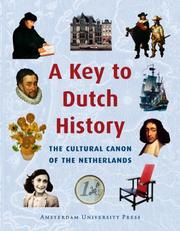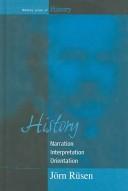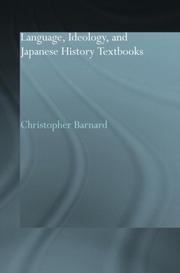| Listing 1 - 10 of 13 | << page >> |
Sort by
|

ISBN: 1315699796 1317456912 9781315699790 9781317456919 9781317456926 1317456920 9781317456902 1317456904 9780765604224 9780765604231 0765604221 076560423X Year: 2015 Publisher: Oxfordshire [England] New York, New York
Abstract | Keywords | Export | Availability | Bookmark
 Loading...
Loading...Choose an application
- Reference Manager
- EndNote
- RefWorks (Direct export to RefWorks)
History - Study and teaching. --- History --- Human ecology --- Study and teaching

ISBN: 1134624301 1280331755 0203024044 9780203024041 9780415206686 0415206685 9780415206693 0415206693 9781134624300 9781134624256 1134624255 9781134624294 1134624298 9781280331756 Year: 2004 Publisher: London: Routledge,
Abstract | Keywords | Export | Availability | Bookmark
 Loading...
Loading...Choose an application
- Reference Manager
- EndNote
- RefWorks (Direct export to RefWorks)
Written by a range of history professionals, including HMIs, this book provides excellent ideas on the teaching, learning and organization of history in primary and secondary schools.
Book
ISBN: 9789004185203 9004185208 1283039303 9786613039309 9004189424 9789004189423 9781283039307 Year: 2010 Volume: 42 Publisher: Leiden: Brill,
Abstract | Keywords | Export | Availability | Bookmark
 Loading...
Loading...Choose an application
- Reference Manager
- EndNote
- RefWorks (Direct export to RefWorks)
What kind of being did a sailor see, when he was confronted with a mermaid? A demon, a fairy, a monster, or only an extraordinary marine mammal? Transmitted by the tradition of ancient natural history the European universities faced many creatures belonging to natural science as well as to mythology, which still could be observed throughout the world. While medieval sholarship treated those beings as subjects for demonology, early modern scholars started to rationalize the sirens and satyrs and developed new models of explanation. Throughout hundreds of academical disputations the debate on hybrid creatures can be followed up to the time of Linne and Buffon and the zoological classifications of the 18th century. This study reconstructs the discussions of hybrid creatures as part of the Early Modern change of paradigms and the longue duree of ancient and medieval natural history with the help of five examples, sirens, satyrs, giants, pygmies, and dragons.
Comparative religion --- Animals, Mythical --- Natural history --- Animals, Mythical, in literature --- Demonology --- Identification --- History --- Study and teaching (Higher) --- Animals, Mythical - Europe - Identification - History --- Natural history - Study and teaching (Higher) - Europe --- Demonology - Europe - History --- Animals, Mythical, in literature. --- History.

ISBN: 9789053564981 9053564985 9048508061 9789048508068 Year: 2007 Publisher: Amsterdam Amsterdam University Press
Abstract | Keywords | Export | Availability | Bookmark
 Loading...
Loading...Choose an application
- Reference Manager
- EndNote
- RefWorks (Direct export to RefWorks)
Many think they know the legends behind tulipmania and the legacy of the Dutch East India Tea Company, but what basic knowledge of Dutch history and culture should be passed on to future generations? A Key to Dutch History and its resulting overview of historical highlights, assembled by a number of specialists in consultation with the Dutch general public, provides a thought-provoking and timely answer. The democratic process behind the volume is reminiscent of the way in which the Netherlands has succeeded for centuries at collective craftsmanship, and says as much about the Netherlands as does the outcome of the opinions voiced.
History of civilization --- History of the Netherlands --- History -- Study and teaching. --- Manuscripts -- Netherlands. --- Netherlands -- Civilization. --- History --- Netherlands, Belgium & Luxembourg --- Regions & Countries - Europe --- History & Archaeology --- Study and teaching --- Study and teaching. --- Netherlands --- Civilization. --- World history --- history --- wetenschap algemeen --- gescheidenis --- popular science
Book
ISBN: 2859395253 2757421859 9782859395254 Year: 1997 Volume: *1 Publisher: Lille: Presses universitaires du Septentrion,
Abstract | Keywords | Export | Availability | Bookmark
 Loading...
Loading...Choose an application
- Reference Manager
- EndNote
- RefWorks (Direct export to RefWorks)
Si l’on dispose de travaux d’historiographie et d’épistémologie, de réflexions sur les finalités de l’histoire enseignée — enjeux de connaissance et de mémoire, formation intellectuelle et identitaire, critique et civique —, rares sont les recherches qui s’attachent à confronter les effets de la rencontre entre l’approche théorique et la vérification empirique. A partir d’une double enquête auprès des professeurs et des élèves de l’enseignement secondaire, cette étude aborde à la fois les modalités d’apprentissage et les comportements d’enseignement. Les élèves s’approprient les connaissances historiques (événements, concepts, entités) selon des modalités propres à la pensée naturelle, imageante, analogique, métaphorique, ancrée dans une mémoire collective qui fonctionne aux valeurs. Autant dire que ces processus paraissent peu légitimes aux yeux de la rigueur historienne, et souvent aux yeux des professeurs attentifs à respecter scrupuleusement les critères de la discipline : contextualisation, complexité, chronologie. Ces contraintes pèsent lourdement lorsqu’il faut les concilier avec celles de la situation didactique : attachement au programme, lutte contre le temps. Entre ces coutumes d’enseignement en vigueur dans les classes d’histoire et les processus d’apprentissage mis en œuvre par les élèves, la rencontre se fait rarement de manière harmonieuse. C’est à ce point qu’il faut réfléchir si l’on veut dégager de nouvelles perspectives sur l’enseignement de la discipline.
History --- Histoire --- Study and teaching (Secondary) --- Etude et enseignement (Secondaire) --- -Annals --- Auxiliary sciences of history --- Study and teaching (Secondary). --- -Study and teaching (Secondary) --- History - Study and teaching (Secondary) --- éducation --- apprentissage --- didactique --- école --- professeur --- élève

ISBN: 1571816240 9781571816245 1782389679 1845450493 Year: 2008 Volume: 5 Publisher: New York: Berghahn,
Abstract | Keywords | Export | Availability | Bookmark
 Loading...
Loading...Choose an application
- Reference Manager
- EndNote
- RefWorks (Direct export to RefWorks)
Without denying the importance of the postmodernist approach to the narrative form and rhetorical strategies of historiography, the author, one of Germany's most prominent cultural historians, argues here in favor of reason and methodical rationality in history. He presents a broad variety of aspects, factors and developments of historical thinking from the 18th century to the present, thus continuing, in exemplary fashion, the tradition of critical self-reflection in the humanities and looking at historical studies as an important factor of cultural orientation in practical life.
Historiography --- History --- History, Modern --- Historical criticism --- Authorship --- Philosophy --- Criticism --- History as a science --- Philosophy. --- Study and teaching. --- Historiography. --- History - Philosophy. --- History - Study and teaching. --- Histoire --- Historiographie --- Methodology. --- Méthodologie
Book
ISBN: 9460915248 9460915256 9786613695697 1280785306 Year: 2011 Publisher: Rotterdam : Sense Publishers,
Abstract | Keywords | Export | Availability | Bookmark
 Loading...
Loading...Choose an application
- Reference Manager
- EndNote
- RefWorks (Direct export to RefWorks)
The Invention of Science: Why History of Science Matters for the Classroom introduces readers to some of the developments that were key for the emergence of Eurocentric science, the discipline we call science. Using history this book explores how human groups and individuals were key to the invention of the discipline of we call science. All human groups have a need and desire to produce systematic knowledge that supports their ongoing survival as a community. This book examines how history can help us to understand emergence of Eurocentric science from local forms of systematic knowledge. Each chapter explores elements that were central to the invention of science including beliefs of what was real and true, forms of reasoning to be valued, and how the right knowledge should be constructed and the role of language. But most importantly this book presented these ideas in an accessible way with activities and questions to help readers grapple with the ideas being presented. Enjoy!
Science -- History -- Study and teaching. --- Science -- Study and teaching. --- Science --- Education --- Physical Sciences & Mathematics --- Social Sciences --- Education, Special Topics --- Sciences - General --- Study and teaching --- History --- Study and teaching. --- Natural science --- Science of science --- Sciences --- Education. --- Science education. --- Science Education. --- Science education --- Scientific education --- Natural sciences
Book
ISBN: 9783631657799 9783653052534 365305253X 363165779X 1322499055 Year: 2015 Publisher: Frankfurt am Main Bern Bruxelles [etc.] Peter Lang
Abstract | Keywords | Export | Availability | Bookmark
 Loading...
Loading...Choose an application
- Reference Manager
- EndNote
- RefWorks (Direct export to RefWorks)
This volume of essays is the result of the EU project "EHISTO", which dealt with the mediation of history in popular history magazines and explored how history in the commercialised mass media can be used in history teaching in order to develop the media literacy and the transcultural competences of young people. The volume offers articles which for the first time address the phenomenon of popular history magazines in Europe and their mediating strategies in a foundational way. The articles are intended as introductory material for teachers and student teachers. The topic also offers an innovative approach in terms of making possible a European cross-country comparison, in which results based on qualitative and quantitative methods are presented, related to the content focus areas profiled in the national magazines.
journals [periodicals] --- History as a science --- Journalism --- Historiography --- History in popular culture --- History --- Study and teaching. --- World history --- Study and teaching --- Historiography -- Europe. --- History -- Study and teaching. --- History in popular culture -- Europe. --- Popular culture --- transnational --- intercultural history education --- history teaching --- public history --- ehisto --- history magazines --- didactics of history --- media literacy --- Bitly --- Popular history --- Sweden
Book
ISBN: 9064458480 9065503897 9789064458484 Year: 1994 Publisher: Berchem: EPO,
Abstract | Keywords | Export | Availability | Bookmark
 Loading...
Loading...Choose an application
- Reference Manager
- EndNote
- RefWorks (Direct export to RefWorks)
45-848-0
Historiography --- History --- Study and teaching (Secondary) --- Histoire --- --Enseignement --- --Civilisation --- --Influence --- --Study and teaching (Secondary) --- Didactics of history --- cultuurgeschiedenis --- History as a science --- culturen (mensen) --- geschiedenis --- Belgium --- geschiedenisonderwijs --- geschiedeniswetenschap --- geschiedschrijving --- 456.6 --- Geschiedenisonderwijs --- beeldvorming --- cultuurverschillen --- didactiek --- onderwijs --- Academic collection --- #gsdb8 --- 930.2 --- #A9411A --- 930.2 Methoden en technieken van de geschiedwetenschap --- Methoden en technieken van de geschiedwetenschap --- Annals --- Auxiliary sciences of history --- Historical criticism --- Authorship --- didactiek algemeen - geschiedenis, maatschappijleer --- Criticism --- #A9503H --- Geschiedschrijving --- Geschiedenis --- Didactiek --- Geneeskunde --- Techniek (wetenschap) --- Atlas --- Museum --- historiografie --- History - Study and teaching (Secondary) - Belgium --- Historiography - Belgium --- Enseignement --- Civilisation --- Influence --- Histoire des civilisations --- Historische bronnen

ISBN: 0415863112 1134429282 1280048255 0203380746 9780203380741 9780415297974 0415297974 9786610048250 6610048258 9781134429288 9781134429233 1134429231 9781134429271 1134429274 9780415863117 0415297974 9781280048258 Year: 2003 Publisher: London New York RoutledgeCurzon
Abstract | Keywords | Export | Availability | Bookmark
 Loading...
Loading...Choose an application
- Reference Manager
- EndNote
- RefWorks (Direct export to RefWorks)
The Japanese history textbook debate is one that keeps making the news, particularly with reference to claims that Japan has never 'apologised properly' for its actions between 1931 and 1945, and that it is one of the few liberal, democratic countries in which textbooks are controlled and authorised by the central government. There are frequent protests, both from within Japan and from overseas, that a biased, nationalistic history is taught in Japanese schools. This is the first time that all the authorised textbooks currently in use have been analysed using a critical discourse that is ancho
Japanese language --- Social aspects. --- Japan --- History --- Study and teaching. --- J3005 --- J4950 --- Social aspects --- Japan: History -- study and teaching --- Japan: Education -- curriculum, teaching materials, textbooks --- al-Yābān --- Giappone --- Government of Japan --- Iapōnia --- I︠A︡ponii︠a︡ --- Japam --- Japani --- Japão --- Japon --- Japonia --- Japonsko --- Japonya --- Jih-pen --- Mư̄ang Yīpun --- Nihon --- Nihon-koku --- Nihonkoku --- Nippon --- Nippon-koku --- Nipponkoku --- Prathēt Yīpun --- Riben --- State of Japan --- Yābān --- Yapan --- Yīpun --- Zhāpān --- Япония --- اليابان --- يابان --- 日本 --- 日本国 --- Textbooks. --- Jepun --- Yapon --- Yapon Ulus --- I︠A︡pon --- Япон --- I︠A︡pon Uls --- Япон Улс
| Listing 1 - 10 of 13 | << page >> |
Sort by
|

 Search
Search Feedback
Feedback About UniCat
About UniCat  Help
Help News
News